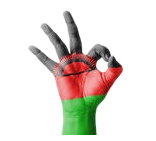FAQs: Common Questions About Malawi Safaris
The dry season (May-October) is ideal for wildlife viewing as animals gather near water sources. September-October offer peak sightings but warmer weather. The wet season (November-April) brings lush scenery, migratory birds, and newborns. Lake Malawi remains pleasant year-round. Shoulder seasons (May-June, September-October) provide comfortable temperatures and fewer tourists.
By Flight: Fly into Kamuzu International Airport in Lilongwe or Chileka International Airport in Blantyre. Major airlines include Ethiopian Airlines, Kenya Airways, and South African Airways, connecting through regional hubs like Addis Ababa, Nairobi, or Johannesburg.
By Road: Enter via land borders from Tanzania (Songwe), Zambia (Mwami, Chiponde), or Mozambique (Dedza, Muloza, Zobue). Roads vary in condition. Ensure you have proper documentation including visas, vehicle permits, and insurance. The journey offers scenic views but can be lengthy depending on your starting point.
Options range from luxury tented camps in Majete and Liwonde to budget campsites. Premium lodges offer en-suite facilities and gourmet dining. Mid-range camps provide comfortable amenities. Lakeside properties include boutique resorts and backpacker lodges. Most accommodations emphasize sustainability and community involvement, offering excellent value and personalized service compared to other safari destinations.
Pack lightweight clothing, binoculars, camera, hat, sunscreen, insect repellent, and sturdy walking shoes for safaris.
Malawi’s parks host elephants, lions, leopards, hippos, crocodiles, and various antelope. Liwonde National Park features large elephant herds and exceptional birdlife. Majete Wildlife Reserve offers Big Five viewing after successful reintroduction programs. Nyika National Park showcases zebras, reedbuck, and endemic species. While wildlife density is lower than East Africa, intimate encounters and fewer crowds create memorable experiences.
Malawi offers intimate, off-the-beaten-path experiences with smaller crowds than Kenya or Tanzania. It’s more affordable while uniquely combining bush safaris with Lake Malawi’s beaches. The country’s friendly people earn it the nickname “The Warm Heart of Africa.” Perfect for travelers seeking authentic experiences beyond mainstream circuits with excellent value for money.
Yellow fever vaccination required if arriving from endemic countries. Recommended: hepatitis A/B, typhoid, and routine immunizations. Malaria is present year-round; take antimalarial medication, use insect repellent, and sleep under nets. Drink bottled water. Consult your doctor 6-8 weeks before travel. Travel insurance with medical evacuation coverage is advisable.
Absolutely! Combine bush safaris with Lake Malawi’s beaches, snorkeling, diving, and kayaking among unique cichlid species. Adventure options include hiking Mount Mulanje or Zomba Plateau. Cultural tours visit local villages, tea estates, and markets. Malawi’s compact size makes it easy to blend wildlife, water sports, hiking, and cultural experiences in one trip.
Safaris in Malawi are generally very safe when booked with us as Local Tour Company whom we have reputable guides and work with best lodges. You can also follow our safety guidelines.
Majete, Liwonde, and Nyika are the top national parks, offering diverse wildlife and scenic landscapes perfect for safari adventures in Malawi.

